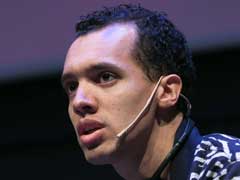Gaël Faye is a writer and rapper. At the age of thirteen he had to leave the city of his birth, Bujumbura (Burundi) and go to Paris, fleeing civil war and the genocide against the Tutsi in Rwanda. In a banlieue not far from Versailles he discovered rap and hip-hop. Faye has released two solo discs and published the novel Small Country (Penguin, 2018). While visiting the CCCB last February, Gäel Faye was interviewed by publicspace.
In the interview, Faye spoke of his three cities: Bujumbura, where he was born and spent the first years of his life; Paris, where he spent his adolescence and young manhood; and Kigali, where he spends half the year. He describes Bujumbura as an agreeable, easy city, thanks to its “human scale”, Kigali as a changing city full of slopes and, after the genocide, difficult to live in because it has no centre and no unity, and Paris as a formidable city made for pedestrians and where the car takes second place.
As for his favourite public spaces, he names Centquatre 104 in Paris because of its open, almost utopian atmosphere as a space where a lot of activities take place, all at the same time. It is a café, an improvised dance venue, and a place to read, et cetera. In Kigali, his favourite public space is the Ishyo Arts Centre because of its open character and the fact that anyone can enter.
Finally, Faye speaks of the Maisons de la Jeunesse et la Culture in Paris, saying that it is because of these spaces that he became a musician and writer. Their quality consisted in the fact that they were not managed with any particular aim or function in mind but, more than anything else, they were places for exchanges, without limits, not unlike the Spoken Word bars, the venues for slam poetry encounters. Faye calls for more places where people from different social circles can meet and listen to each other, and warns that cities run the risk of losing their ability to ensure that their inhabitants interact.



